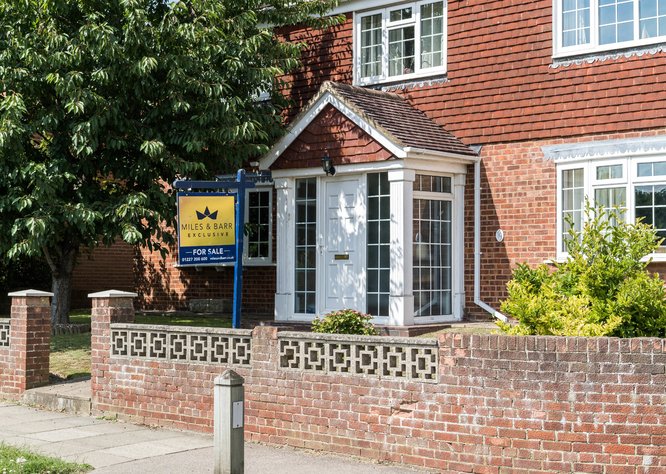
- Home
- Get Social
- Blog
- News
- Selling a house with probate
12 Sep 2023
Selling a house with probate
Insights, tips and steps to selling a house with probate

What is probate?
It is the legal process of settling a deceased person's estate, including their assets and debts. Only an Executor or Administrator can start and oversee the probate process. If you find yourself in a position where you are asked to sell a house that will go through probate, it's important to understand the unique steps and considerations involved. In this blog, we'll guide you through what to expect when selling a house with probate, offering insights and tips to help you navigate the process.
Can I sell a property with probate?
Although you cannot complete a property sale until probate has been granted, you can appoint an estate agent to market the property, arrange viewings, accept a sale offer, and begin the legal sale process with conveyancers. The solicitor’s searches, enquiries and administration can be completed whilst you wait for probate to be granted by the UK Government. However, please note that you will not be able to exchange contracts with the buyer’s solicitors until probate is complete. For this reason, it is highly advised that you inform the estate agent, at the time that you appoint them, that the property is a probate sale. They will make sure that all prospective buyers are notified.
How long will it take for the UK Government to grant probate?
It currently takes the government an average of 9 – 12 months, from the date of the death to the estate being distributed, to complete probate. It is recommended that the appointed Executor of Administrator apply for probate before the property is placed on the market for sale as it currently takes an average of 20 weeks to complete a house sale. Do note that timings are subject to fluctuations based on individual probate and property circumstances.
Understanding Probate
It involves several legal procedures that ensure a deceased person's assets are distributed according to their will or intestacy laws. When it comes to selling a house during probate, the Executor or Administrator of the estate is typically responsible for managing the sale. Before listing the property, certain key steps must be taken:
- Identify the Executor or Administrator: The Executor, named in the deceased's will, or the Administrator, appointed by the court if there is no will, is responsible for handling the probate process.
- Notify Creditors and Beneficiaries: Creditors and beneficiaries must be notified of the probate proceedings, to give them an opportunity to make claims against the estate.
- Valuation of the Property: Obtain a professional, in-person valuation to determine the market value of the property. This valuation will determine the property’s listing price. Click here if you’d like to book an expert, free valuation with a member of our team.
Steps to Selling a House with Probate
Once the preliminary steps are completed, as noted above, you can move forward with selling the property. Here's how to proceed:
- Court Confirmation: Depending on the value of the estate and other factors, court confirmation might be required for the sale of a probate property. This involves applying to the Probate Registry for permission to sell.
- Property Preparation: Prepare the house for sale. Allow yourself plenty of time to complete this step, as we understand this will likely be a difficult and emotional process.
- Listing the Property: Appoint an estate agent experienced in probate sales. They can guide you through the process and market the property effectively. We have years of experience handling probate properties and we’d be happy to answer any questions you may have.
- Disclosures: Ensure you comply with all legal disclosure requirements related to the property's condition and any known issues. It may be worth consulting a solicitor to check through these documents on your behalf as they will be able to spot any defects or restrictions in the deeds.
- Accepting Offers: When offers are received, they need to be presented to the beneficiaries for consideration. Once accepted by all the sale can proceed to the next stage as the appointed solicitors will begin their usual searches and enquiries.
- Probate Property Sale: Exchange of contracts can only occur when probate has been granted. Once probate is granted a completion date can be set and the sale can close in the same way as any usual property sale would proceed.
Conclusion: Selling a house during probate requires a thorough understanding of the legal and logistical processes and our expert, compassionate colleagues are here to guide you through this time. It is important that Executors and Administrators, as well as beneficiaries, appoint an experienced estate agent that they trust when they sell a property going through probate. If you find yourself in a position to sell a probate property and don’t know where to start, click here to get in touch with your local Miles & Barr office for free, no-obligation advice.

Instant Property Valuation
What's yours worth? An up-to-date valuation of your property is the first step to finding your dream home!
